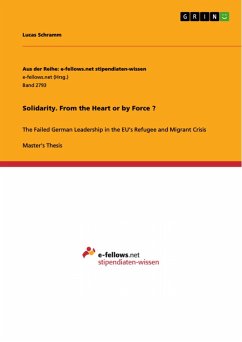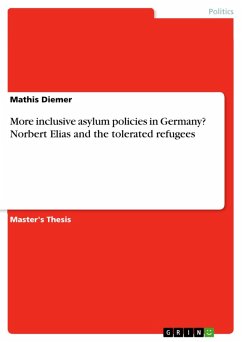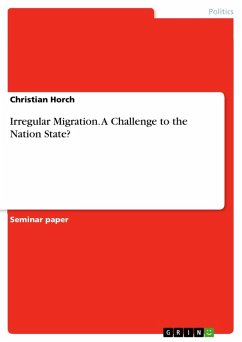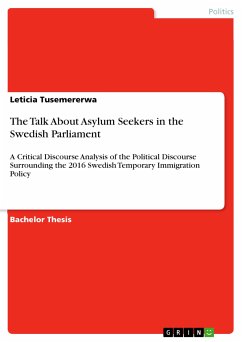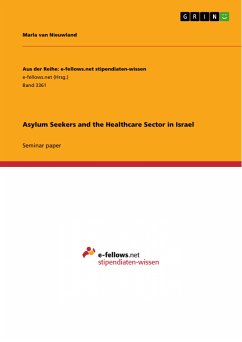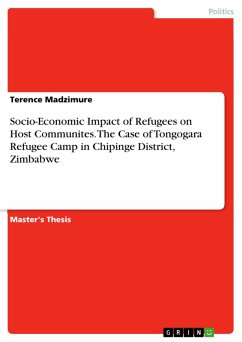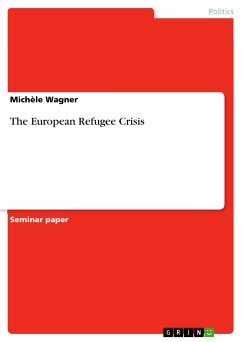Master's Thesis from the year 2018 in the subject Politics - Topic: European Union, grade: 2,0, College of Europe (Department for European and Governance Studies), language: English, abstract: In the years 2015 and 2016, the European Union (EU) and (some of) its member states were facing a very high number of asylum-seekers. This inflow revealed the shortcomings and dysfunctionalities of the European asylum system and plunged the EU into one of its biggest crises: Member states could hardly agree on common measures, and different national preferences for dealing with asylum-seekers led to profound and ongoing political divisions. Germany, which particularly was affected by the inflow, sought to 'europeanize' the phenomenon and to distribute the loads more evenly across the EU - but met major resistance. Contrarily to the widely held view - both in the academic literature and the European public - that Germany, in recent years, has shaped and even dominated European politics, it largely failed with its main policy proposals in the refugee and migrant crisis. To uncover the reasons, the present thesis applies an analytical model of 'political leadership'. Based on current academic research, relevant newspaper articles and self-conducted expert interviews, it is argued that there might have been supply but not sufficient demand for successful German political leadership. In doing so, this thesis so far is the only larger academic paper that explicitly links the latest research on political leadership with Germany's role in the EU's refugee and migrant crisis.
Dieser Download kann aus rechtlichen Gründen nur mit Rechnungsadresse in A, B, BG, CY, CZ, D, DK, EW, E, FIN, F, GR, HR, H, IRL, I, LT, L, LR, M, NL, PL, P, R, S, SLO, SK ausgeliefert werden.

